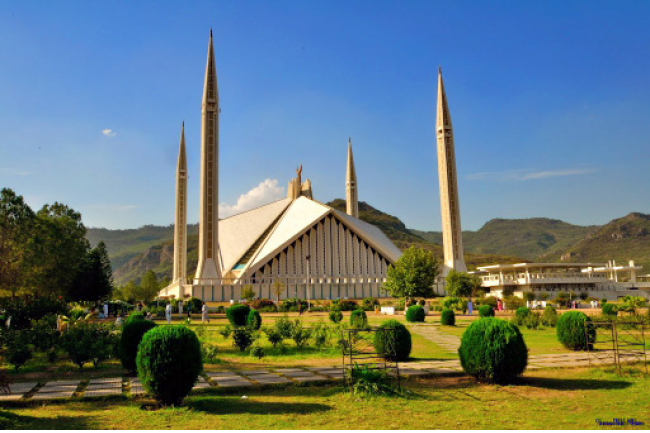Within the last two years, as militancy has escalated in Afghanistan, a sense of mistrust between Kabul and Islamabad heightened and harsh rhetoric has been exchanged between Afghan-Pak officials. Allegedly, the Taliban enjoy safe havens in Pakistan and orchestrate deadly attacks there from. However, Pakistani authorities either kept silent or resisted against the claim or put pressure on Afghan migrants calling them terrorist. The roller-coaster-ride relation fluctuated seriously and continued up to now.
The cold war between Kabul and Islamabad is reflected through media. For instance, Pakistani newspapers report that in the aftermath of Quetta carnage, which left more than 70 people most of them lawyers dead, Pakistan’s security forces sealed a seminary in Quetta’s Eastern Bypass area on Sunday and 100 Afghan students were taken into custody. Similarly, Pakistan’s police arrested a number of Afghan migrants earlier and called them to be involved in terrorist activities. Afghanistan’s media, however, states that Pakistani Taliban are widely involved in terrorist attacks in Afghanistan and a number of insurgents who have been killed, recently, in southeastern Paktia include notorious Pakistani militant commander Hafiz Rashid and others. Based on Afghanistan’s media and intelligence, the Taliban fighters organize their attacks across the border – where their high-ranking officials such as Bin Laden and Mullah Mansour were killed and Mullah Omar passed away.
Afghan officials have long been criticizing Pakistan for allowing the Afghan Taliban and the notorious Haqqani terrorist network to use its soil for planning and coordinating attacks in Afghanistan. A number of the US lawmakers also criticized Pakistan for not doing enough to eliminate the terrorists’ safe havens in that country and refused to fund the purchase f F-16 fighter jets for the Pakistani air force.
It is believed that the cold war between Afghan-Pak officials will stoke the current tension and pave the way for warring parties to fish in troubled waters. Needless to say, Pakistan also suffers from unmitigated militancy and comes under terrorist attacks every now and then. Therefore, Pakistan will have to intensify its military operation (Zarb-e-Azb) against the Taliban’s hubs and carry out operation against the seminaries, which are changed into hotbed of radical ideology and training center for suicide attackers. Undeniably, a number of Afghan Taliban is trained in Pakistani seminaries and sent back to carry out terrorist attacks – the sealing of madrasah, as reported by Pakistani media, and detaining Afghan students will be welcomed by Afghans. Since Afghan officials believe that there is no matter of good and bad Taliban, Pakistan can sentence them to death. In a nutshell, Taliban’s geography and birthplace do not matter for Afghan government and all militant fighters – be it Pakistani or Afghan – deserve the same punishment.
To be honest, Afghanistan’s hard mechanism (serious strategy) against the Taliban is highly appreciable. Reportedly, a local Afghanistan court has recently sentenced guerrilla commander Sirajuddin Haqqani’s brother Anas Haqqani to death. The Taliban had earlier confirmed Anas and Hafiz Rashid’s detention, adding that the two had travelled to Qatar to meet Taliban leaders released from Guantanamo. Afghanistan hanged six Taliban prisoners in Kabul few months back which was followed by a series of target attacks killing some Afghan judges and court officials.
Pakistan’s adviser to the Prime Minister on Foreign Affairs Sartaj Aziz has said Pakistan believes that a politically negotiated settlement through an Afghan-owned and Afghan-led peace process is the most viable option for achieving durable peace in the war-torn country. Underscoring how peace in Afghanistan is linked to peace and stability in Pakistan, the adviser said ultimately it would also help realize our leadership’s vision for promoting connectivity with Central Asia and beyond.
It is believed that resuming peace talks, which had been constantly persisted by Pakistani officials, will not bring peace in Afghanistan, mainly after the appointment of Mullah Haibatullah, a radical ideologue who has intensified the activities in the country. Regarding peace talks, the Taliban’s approach is predictable: First, they will insist on their past preconditions i.e. the complete withdrawal of US forces from Afghanistan, releasing their prisoners, removing their high-ranking officials from the UN blacklist, etc. Secondly, they will not cease their terrorist activities and killing civilians despite the talks, as they never did. Thirdly, the Taliban will simply play a foul game and Afghan government cannot trust the Taliban elements since they focused on one-sided advantages in the past and played no constructive role.
As the Taliban have no determination for a bona fide peace, persisting on this issue will be futile and only one option is left for the two countries to reduce militancy which is nothing other than military action. The bitter experience and futile result of seeking peace through negotiation should be an eye-opener for both Kabul and Islamabad and act upon the idea of “if you want peace, prepare for war”.
Home » Opinion » Cold War between Kabul and Islamabad
Cold War between Kabul and Islamabad
| Hujjatullah Zia

